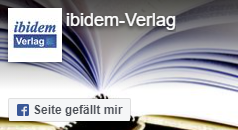- About the book
-
Details
This captivating volume brings together case studies drawn from four post-Soviet states—Russia, Ukraine, Belarus, and Moldova. The collected papers illustrate how the events that started in 1985 and brought down the USSR six years later led to the rise of fifteen successor states, with their own historicized collective memories. The volume’s analyses juxtapose history textbooks for secondary schools and universities, and how they aim to create understandings as well as identities that are politically usable, within their different contexts. From this emerges a picture of multiple perestroika(s) and diverging development paths. Only in Ukraine—a country that recently experienced two popular uprisings, the Orange Revolution and the Revolution of Dignity—the people themselves are ascribed agency and the power to change their country. In the other three states, elites are, instead, presented as prime movers of society, as is historical determinism. The volume’s contributors are Diana Bencheci, Andrei Dudchik, Liliya Erushkina, Marharyta Fabrykant, Alexandr Gorylev, Andrey Kashin, Alla Marchenko, Valerii Mosneagu, Alexey Rusakov, Natalia Tregubova, and Yuliya Yurchuk. - The author
-
About the author
Dr. Li Bennich-Björkman is Johan Skytte Professor in Eloquence and Political Science at the University of Uppsala. A member of the Swedish Royal Academy of Arts and Sciences, she held visiting fellowships at the Swedish and Helsinki Collegiums for Advanced Study as well as University of California at Berkeley. Her previous books include, among others, Political Culture under Institutional Pressure (Palgrave Macmillan 2007) and Baltic Biographies at Historical Crossroads (Routledge 2012). Her papers have been published by, among other outlets, East European Politics and Societies, Nationalities Papers, Journal of Baltic Studies, East European Quarterly, East/West: Journal of Ukrainian Studies, Journal of Contemporary Central and Eastern Europe, and Higher Education Quarterly.
Dr. Sergiy Kurbatov is an Affiliated Researcher with the University of Uppsala, Senior Fellow at the National Academy of Educational Sciences of Ukraine in Kyiv, and Board Member of the Ukrainian Educational Research Association. Previously, he held visiting positions at Colorado State University and Brown University. His previous books include Istorychnyy chas yak determinanta tvorchoho protsesu (Informatsiiny systemy 2009) and Fenomen universytetu v konteksti chasovykh ta prostorovykh vyklykiv (Universytetska knyha 2014). His papers have been published by, among other outlets, Vyshcha osvita Ukrainy, Filosofiya osvity, International Review of Social Research, and Pedagogika Filozoficzna. - Reviews
-
Reviews
“This is a fascinating study of how textbooks from various post-Soviet contexts portray and interpret Perestroika—the foundational event for contemporary Russia, Ukraine, Belarus, and Moldova. The authors skillfully address the panoply issues, central for understanding today’s regimes in these countries as well as differences among them. The book homes in on the problems of social change and continuity, legitimacy and resistance, people’s agency and conformism.”—Michail Suslov, Assistant Professor of Cross-Cultural and Regional Studies, University of Copenhagen
“Bjorkman/Kurbatov book is that of the importance of path-dependence – going back yet from pre-Soviet times. Local views of perestroika are highly specific and enduring, something that will be of great significance for current and future politics. The well presented study of state-enhanced identity creation and socialization has done a fine service in pointing out the endurance of national perceptions and identities to specialists and readers interested in the region.”— Dennis Soltys Professor at the Department of Public Administration and International Development, KIMEP University
"Overall, […] the volume offers a timely reminder of how our lived memory can be dismantled and reassembled to serve national needs. Textbook depictions of the Soviet past range from total renouncement to regret and mourning. But not even in Belarus is there a unified narrative of what perestroika meant. The final word has not yet been spoken: the memory and meaning of perestroika are still in the making."—Helge Blakkisrud, The Russian Review, Vol. 80, No. 1 - Additional Information
-
Additional Information
Delivery time 2-3 Tage / 2-3 days Author Diana Bencheci, Andrei Dudchik, Liliya Erushkina, Marharyta Fabrykant, Alexandr Gorylev, Andrey Kashin, Alla Marchenko, Valerii Mosneaga, Alexey Rusakov, Natalia Tregubova, Yuliya Yurchuk Editor Li Bennich-Björkman, Sergiy Kurbatov, Andreas Umland Number of pages 202 Language English Publication date Nov 30, 2019 Weight (kg) 0.2510 ISBN-13 9783838213354













